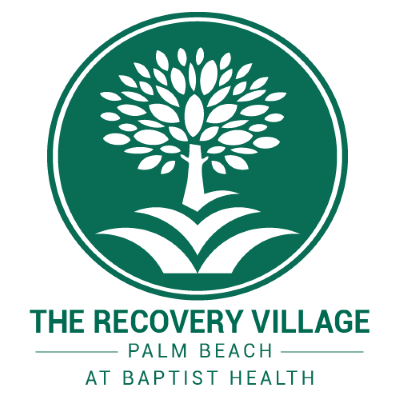- General Effects Of Crack Use Include Burning The American Flag
- General Effects Of Crack Use Include Burning Therapy
- The Effects Of Crack
- General Effects Of Crack Use Include Burning
Crack cocaine is the freebase form of cocaine. Crack’s popularity, in part, was due to its appeal for drug users seeking an inexpensive, ultra-potent, fast acting high. 1,4 The name crack actually comes from the sound that is produced from burning the rock-shaped chunks. 2 Other names for the substance include: 3.
Medically reviewed:12/31/2018
Last updated: 03/26/2020
Author: Addictions.com Medical Review
Reading Time: 5minutes
What is Crack Addiction?
- Crack use can lead to addiction, which is a chronic, relapsing disease that can take over many aspects of your life. The longer you use crack, the higher the potential for crack addiction becomes, and the more severe and the worse the long-term effects become, too. Here are some potential long-term effects of crack abuse: Severe depression.
- However, in addition to the general long-term effects of crack cocaine abuse, each way of administering the drug can create more risks and dangers: Long-Term Dangers Of Smoking Crack Cocaine. Smoking crack exposes the lungs not only to crack, but to any other toxins or chemicals the drug may be laced or cut with.
- A 2020 study in the International Journal of Drug Policy says these items can include:Soft drink cans Glass bottles Plastic water bottles Lightbulbs Empty asthma inhalers You may notice black burn.
- Crack cocaine use among high school students is a particular problem. Nearly 4 percent of high school seniors in the United States used the drug at least once in their lifetime, and more than 1 percent used the drug in the past month, according to the University of Michigan's Monitoring the Future Survey.
Crack cocaine is a highly potent and addictive stimulant processed from powdered cocaine and made to look like a rock crystal. Crack produces effects similar to that of powdered cocaine but comes with a higher number of health risks including lung trauma and bleeding. People who use crack are often more talkative, can stay awake for long periods of time, and complete tasks more quickly.
Table of Contents
Crack is known to be highly addictive due to the way it produces an immediate, intense high that lasts between five and 10 minutes. After the drug’s effects wear off, people use more crack to maintain their euphoria, which causes them to build a tolerance. As people continue to use crack regularly in higher amounts, they become physically dependent and require a certain amount of crack to ward off withdrawal symptoms. The intense crash after use can be marked by mood swings, extreme fatigue, aggression, and other negative effects.
What are the Risks of Crack Addiction?
There are roughly 913,000 people in the U.S. who are diagnosed with cocaine use disorder, which includes crack addiction. Last year over 10,600 people in the U.S. died from a crack-related overdose. Crack is highly addictive, and even one time smoking it has been known to lead to addiction.

Crack became more widely used in the U.S. during the 1980s on behalf of the drug being relatively easy and inexpensive to produce. Crack is made by dissolving powdered cocaine into water combined with ammonia or baking soda and boiled until the drug forms into a solid substance that is dried and broken into rock crystals.
Today, an estimated 1.5 million Americans over the age of 12 are regular cocaine users. Crack addiction can be safely and effectively treated using drug detox and other therapies aimed at helping people overcome psychological symptoms and causes of addiction.
What are the Symptoms of Crack Addiction?
Crack cocaine use offers many of the same risks as powdered cocaine, along with additional risks caused by smoking the substance. Short-term effects of crack include:

- Intense “rush” of euphoria
- Increased energy level
- Talking more
- Hyper-stimulation
- Increased blood pressure
- Increased heart rate
- Increased breathing rate
- Constriction of peripheral blood vessels
- Dilated pupils
- Decreased appetite
- Anxiety and paranoia
- Aggressive, paranoid behavior
- Depression
- Intense drug cravings
- Sudden death – even one use of crack can cause overdose and death
Prolonged use of crack can cause a number of problems for one’s physical and mental health. Crack use can lead to addiction, which is a chronic, relapsing disease that can take over many aspects of your life. The longer you use crack, the higher the potential for crack addiction becomes, and the more severe and the worse the long-term effects become, too.
Here are some potential long-term effects of crack abuse:

- Severe depression
- Irritability, mood disturbances
- Aggressive, paranoid behavior
- Delirium or psychosis
- Tolerance, addiction
- Auditory and tactile hallucinations
- Heart attack and heart disease
- Stroke
- Respiratory failure
- Brain seizures
- Sexual dysfunction (for men and women alike)
- Reproductive damage, infertility (men and women)
- Increased frequency of risky behavior
- Death
What are the Signs of Crack Addiction?
The short-term effects of crack cocaine often appeal to users who enjoy feeling more energetic, confident, and social. Crack can make people feel extremely happy, motivated, and stimulated, but can lead to aggression, irritability, and anxiety when used in high amounts.
Crack dependence can then quickly turn into an addiction, which is when a person continues using crack frequently and impulsively despite knowing it can lead to negative consequences. Crack addiction is often marked by changes in behavior that rule in favor of obtaining and using crack.
If you suspect someone is abusing crack, look for the signs of addiction.
Physical health-related warning signs of crack addiction:
- Bloodshot eyes dilated pupils
- Changes in appetite
- Changes in sleep patterns
- Seizures without a history of epilepsy
- Deterioration of physical appearance, lack of hygiene and grooming
- Unexplained injuries or accidents
- Shakes, tremors, incoherent speech, impaired coordination
Behavioral symptoms of crack cocaine addiction:
- Increased absence from work or school, other responsibilities
- Loss of interest in activities that were previously found enjoyable
- Decreased motivation in general
- Unexplained and uncharacteristic need for money/financial problems; borrowing or stealing
- Withdrawn, secretive, or suspicious
- A sudden change in relationships, friends, places to hang out, and hobbies
- Getting into trouble often (arguments, fights, accidents, illegal activities)
Psychological crack addiction signs:
- Change in personality or attitude
- Sudden mood changes
- Irritability, angry outbursts, or laughing at nothing
- Periods of unusual hyperactivity or agitation
- Inability to focus, acting lethargic or ‘spacing out’
- Appearing fearful, withdrawn, anxious or paranoid without explanation
What to do if Someone You Love is Abusing Crack
Over time with repeated, regular crack use, the brain comes to rely solely on crack for dopamine and stops producing this chemical on its own. People who become dependent on crack will continue using the drug to experience pleasure, and face a higher risk for addiction as a result. A person is addicted to crack when their body becomes physically dependent on the drug, and they continue using crack despite knowing drug use will result in negative consequences, including health risks.
If you want to help someone through their addiction, try and open the lines of communication to them, but be prepared for them to be in denial about their habit. Working with a doctor or addiction specialist, you can set up an intervention for their crack addiction, to help get them into a treatment facility. Professional treatment is the best course of action to help someone suffering from crack addiction.
Which Treatment Options are Available for Crack Addiction?
Long-term users of crack should seek out inpatient treatment facilities. These provide the best opportunities for overcoming your crack addiction and sustaining a healthy, drug-free lifestyle. Inpatient programs start with a drug detox, and include medical oversight, as well as behavioral therapy. Programs can range anywhere from 30 days to 90 days, with longer stays recommended for more severe addictions.
If you or someone you love is struggling with crack cocaine addiction, seek help right away. Crack is a dangerous drug that can cause serious problems with one’s physical and mental health and can lead to a fatal overdose. But crack addiction treatment can help you or a loved one safely and fully overcome addiction.
Comprehensive guide to illicit drug use, abuse, and addiction. Scientific guides to the most used and dangerous drug people use today.
The basics. Crack info, effects, and addictive potential here.
What is crack?
General Effects Of Crack Use Include Burning The American Flag
Crack, the freebase form of cocaine, is created when cocaine is mixed with water and other solvents (mostly sodium bicarbonate, ammonium bicarbonate, and ammonium carbonate). After mixing, crack cocaine is then cooked into a hard, rock form. Typically, crack is used by smoking it through a glass pipe. This way, it is quickly absorbed into the blood stream and reaches the brain in a matter of seconds. However, crack can also be injected intravenously directly into the blood system. Users also snort crack, since it affects the brain and the central nervous system (CNS) and produces a quick high when nasally insufflated. However, because there is no way to know how much of the drug is actually contained in any single batch of crack, and using crack can quickly lead to toxic overdose and serious consequences.Why do people use crack?
General Effects Of Crack Use Include Burning Therapy
People use crack because of the relatively low-cost and the extreme high that results from using it. In fact, crack has become one of the most widely abused drugs in the United States. The 'high' crack offers only lasts a few solid minutes, so usually people abuse crack progressively, in order to prolong the effects of the drug. This is also why crack is so addictive.Crack effects
Crack affects the body as a whole. It changes the brain chemistry by stimulating the release of dopamine in the body. After inhaling crack, users experience an instant rush that can last for a period of minutes. Euphoric effect is then followed by a 'crash' that drives them to crave the drug and compulsively use more. As a result, users can experience euphoria and supreme confidence as well as extreme paranoia. A list of common side effects associated with crack use include:- Aggressive outbursts
- Alertness
- Cravings
- Extreme euphoria
- Increased blood pressure
- Increased energy
- Insomnia
- Loss of appetite
- Loss of sexual ability
- Seizures
- Strain on the heart
- Sudden heart attack or stroke
- Violent behavior
- Broken interpersonal relationships
- Death
- Depression
- Financial crisis
Is crack addictive?

The Effects Of Crack
Yes, crack is addictive. In fact, crack is a highly potent, very powerful stimulant drug; it is known to be more powerful, cause physical dependence faster and to be far more dangerous than powder cocaine. Crack abuse leads to crack addiction very quickly, and the reason is the drugs' strong potential to cause physical and psychological dependence. Actually, addiction can develop after one single use, or after just a few uses of crack. Crack addiction is a state of captivity. The drug takes control over a user's life, making it very difficult to stop. Cravings to smoke crack can dominate the psyche and all daily activities can become directed towards obtaining and using the drug. To learn more about crack cocaine, feel free to explore the following topics:Related Posts
General Effects Of Crack Use Include Burning
dedication, and most of all… a desire to be free of addiction.